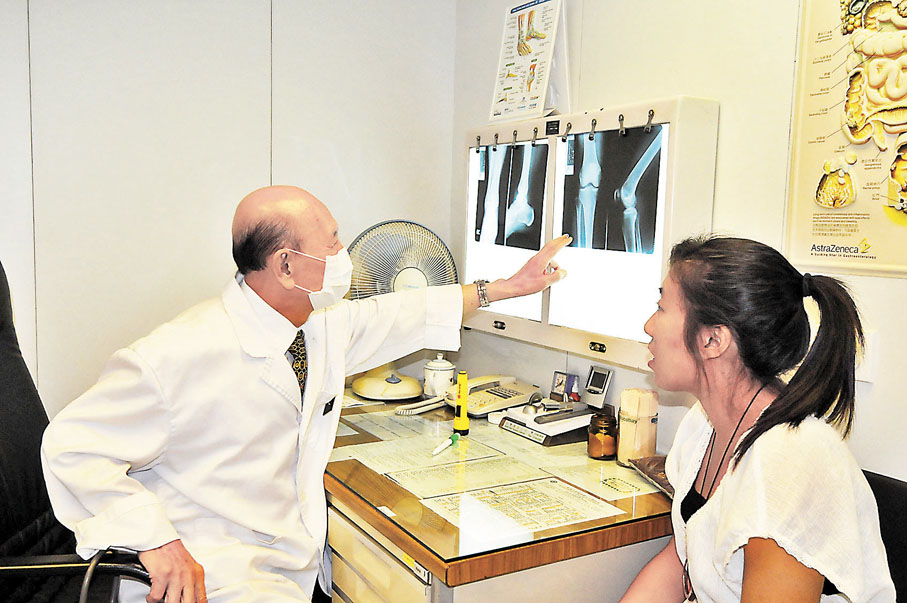【社評雙語道】加強規管 打擊醫療強迫銷售

【原文】下文摘錄自2021年12月16日香港《文匯報》︰
消委會發現,有醫療中心誇大或誤導陳述病情,再以強迫性的銷售手法推銷昂貴療程。醫療服務具有高度專業性,病人十分依賴醫生的判斷,容易上當受騙,醫療強迫銷售性質極為惡劣,相關行為涉嫌觸犯《商品說明條例》,當局應加強執法打擊,並應考慮設定冷靜期,保障消費者利益;醫委會也有責任調查相關醫療中心的醫生是否存在失德,按規處罰,維護專業聲譽。
根據消委會反映的情況,有無良醫療中心以免費或低價健康檢查作招徠吸引消費者,然後誇大或誤導陳述病情,利用高壓硬銷逼消費者購買高收費療程,受害者包括弱勢人士、長者或長期受精神困擾的人士。其中的惡劣手法,包括有醫療中心甚至扣留受害人的銀行卡,閉門兩小時進行疲勞轟炸。
醫生是受社會高度尊重的職業,《日內瓦宣言》要求,醫生要「憑良心和尊嚴行醫」、要「盡己所能維護醫生專業的榮譽和高尚傳統」,才對得起醫生這個名稱。醫學具高度專業性,病人非常依賴醫生的專業判斷。因此,醫療中心的強迫消費,較之美容中心、健身中心的強迫消費更為惡劣、更不可接受。
註冊醫生的行為,本身受醫委會規管。《香港註冊醫生專業守則》訂明,「醫生必須尊重病人拒絕接受所建議的檢驗和治療的決定,並予以記錄。」如果有醫生誤導病人接受療程,醫委會可啟動調查,對判定「專業失德」者作出懲處。但現實中,醫療中心有意規避法律責任,以中心職員充當銷售員游說消費者,而醫生只是提供醫療服務建議,並不直接參與銷售游說。醫委會認為,此種行為涉及灰色地帶,需深入調查理清涉事醫生扮演的角色,才能判斷能否處罰。
其實,醫療中心若對患者的身體情況作出虛假陳述,以虛假商品說明、誤導性遺漏或具威嚇性的營業行為等不良手法牟利,本身已涉嫌觸犯《商品說明條例》,最高刑罰為罰款50萬元及監禁五年。另一方面,營銷者雖然是普通職員,但中心內存在不良銷售手法,主事的醫生不可能完全置身事外,不用負任何責任。醫委會、衞生署仍然應該深入調查,追究持牌醫生的連帶責任,懲戒業界害群之馬,以收阻嚇之效。
現時市面上醫療中心的業務範圍越來越廣,一些非緊急的醫療療程,與健身中心、美容中心推銷的健康療程重疊。不少醫療中心和美容中心、健身中心更屬同一個集團,互相交叉銷售,是造成強迫銷售、「劏客」亂象氾濫的深層原因。社會對美容業、健身業的銷售亂象早有不滿,政府曾就此兩行業設立冷靜期的問題完成公眾諮詢,展開立法程序,可惜受修例風波影響,立法工作停止了。新立法會即將產生,政府應考慮將立法規管銷售手法的範圍擴闊至醫療中心,堵塞法律規管漏洞,切實維護市民利益。
Enhanced Regulation Needed to Combat Coercive Sales of Medical Services
【譯文】The Consumer Council found that some medical centres used coercive sales tactics to lure people into buying expensive treatments by exaggerating or giving misleading claims about customers' health conditions. The provision of medical services is a professional duty. Patients often rely on doctors for their judgement and are vulnerable to falling prey to these sales tactics. The use of coercion in the sales of medical services is deplorable. Such acts may violate the Trade Descriptions Ordinance. The authorities should strengthen law enforcement to combat these practices and consider introducing a cooling-off period to protect consumers; the Medical Council of Hong Kong (MCHK) also has the duty to conduct investigations to find out if the doctors of the relevant medical centres are guilty of misconduct, and penalize them in accordance with the regulations in order to maintain the industry's professionalism.
According to the Consumer Council, some medical centres engaged in unscrupulous sales practices by luring customers with cheap or free health checks. They then exaggerated or give misleading claims about the customers' health conditions, using high-pressure sales tactics to sell expensive treatments. The victims included disadvantaged people, elderly, and those suffering from long-term mental health issues. In one of the cases, a medical centre deployed abusive tactics by withholding the bank card from the victim, who was then bombarded with information behind a closed door for two hours.
The profession of a doctor is highly respected in our society. The Declaration of Geneva requires a doctor to practice his profession "with conscience and dignity" and "foster the honour and noble traditions of the medical profession" in order for him to deserve to be called a doctor or medical practitioner. The provision of medical services is a highly professional job. Patients rely heavily on doctors for their professional judgement. Therefore, compared with the use of coercive sales tactics by beauty centres and fitness centres, the adoption of these aggressive sales practices by medical centres is even worse and more unacceptable.
The conduct of all registered medical practitioners is regulated by MCHK. As set out in the Code of Professional Conduct for the Guidance of Registered Medical Practitioners, "a patient's refusal of proposed investigation and treatment must be respected and documented". If a patient receives a treatment because he or she is misled by the doctor in charge, MCHK can launch an investigation and impose punishment if it finds the doctor involved in the case guilty of professional misconduct. However, in reality, to avoid legal liabilities, medical centres often ask their staff to pitch their services and convince customers to make purchases. Their doctors are only responsible for providing medical advice and do not directly take part in the pitching of services. From MCHK's point of view, there are grey areas in such practices, and in-depth investigations are required in order to clarify the role of the doctors in the involved medical centres and determine whether punishment can be imposed on them.
In fact, the making of false claims by medical centres about patients' health conditions— an act of engaging in aggressive commercial practices involving false trade descriptions or misleading omission—is a suspected violation of the Trade Descriptions Ordinance. The maximum penalty upon conviction is a fine of $500,000 and imprisonment for five years. Even though it was the staff of the medical centres—not the doctors—who pitched the services to customers, there is no way for the doctors in charge to completely wash their hands of their responsibilities. MCHK and the Department of Health should conduct thorough investigations, pursue the responsibilities of the registered doctors concerned and punish the black sheep of the industry, in order to create a deterrent effect.
The business scope of the existing medical centres in the market has expanded increasingly. Some of the non-urgent medical treatments provided by local medical centres overlap with the health treatments offered by beauty centres. Many of these medical centres, beauty parlours and fitness centres are even operated by the same group. The increase of cross selling is the underlying cause for the frequent occurrence of inappropriate sales activities involving coercive sales tactics and ripping-off of customers. There has long been resentment in the society over the unscrupulous sales practices in the beauty and fitness industries. The Government has once completed public consultation on the issue of introducing a cooling-off period for trades in these two industries. Unfortunately, the relevant legislation work has stopped due to the disturbances from the opposition to the proposed legislative amendments to the Fugitive Offenders Ordinance. A new Legislative Council will soon be elected. The Government should consider extending its proposed legislation on regulating unscrupulous sales practices to cover local medical centres in order to plug the legal loopholes and safeguard public interest.◆ Kit Siu
